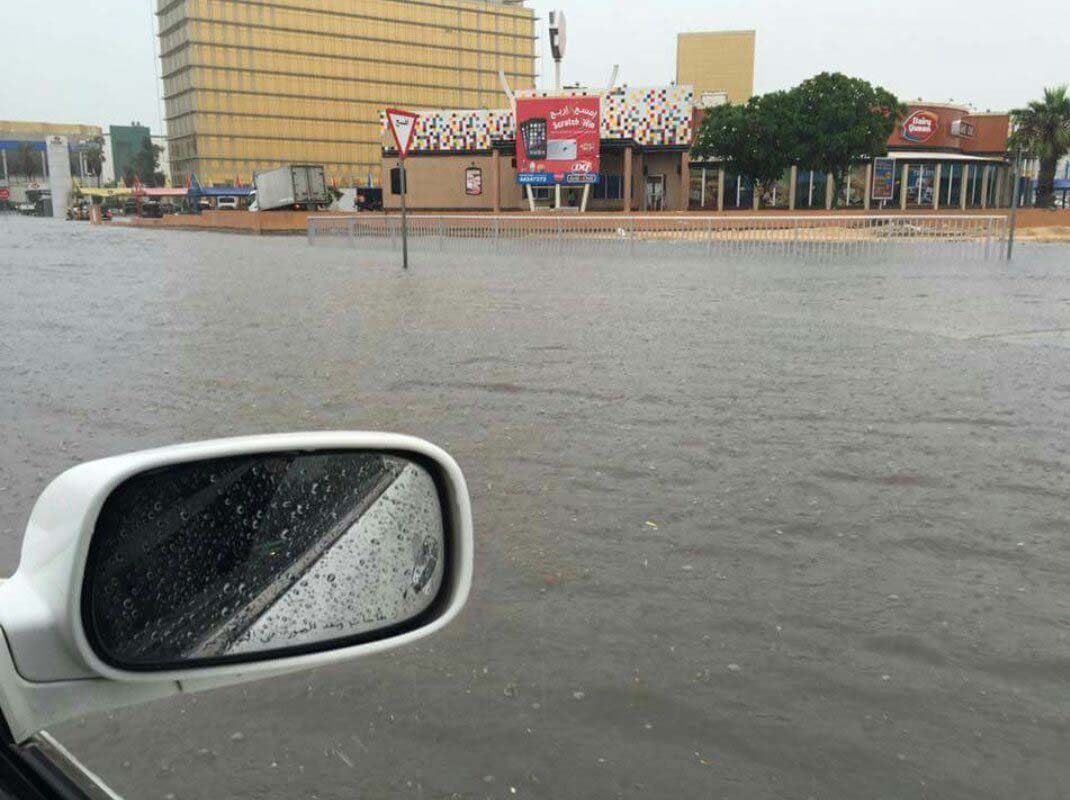
Company owners, contractors and consulting engineers who may be liable for the damage wrought by this week’s rains are not allowed to leave the country, Qatar’s attorney general has said.
In a statement carried on QNA late last night, Attorney General Dr. Ali bin Fetais Al Marri said the travel ban would be in place as the state investigates what happened during Wednesday’s rainfall and decides who to charge for the ensuing chaos, which included flooded roads and damaged buildings.

The move comes after Qatar’s prime minister instructed authorities this week to bring the companies behind the country’s “flawed projects” before the public prosecutor.
The investigation will include at least five firms, but a spokesperson for Qatar’s Government Communication Office told Doha News that these companies would not be publicly named yet.
Deluge
Days after meteorologists forecasted that heavy rains would hit the country, Qatar received a year’s worth of rain in about nine hours.
The precipitation caused gridlock on the roads as many areas became flooded. Additionally, several schools and and malls across the country reported leakage and ceiling collapses, causing them to close temporarily.
Qatar’s Hamad International Airport, which opened last year, was especially hard hit.
Though it did not close, there were multiple reports of water raining down into the passenger terminal, provoking widespread criticism about the structure’s soundness:
The 14 billion dollars Airport @dohanews pic.twitter.com/QiVBCkx9Gt
— Salman Khan (@de_ingeniero) November 25, 2015
In addition to airport contractors, it is likely that Qatar’s public works authority will be scrutinized for its role in the flooding of roads across the country.

Previously, a panel set up by the prime minister in 2014 took only a month to find Ashghal responsible for the flooding of Salwa Road underpasses following heavy rainfall.
At the time, the panel’s report suggested ways of preventing another such problem,
including establishing a permanent emergency and crisis management system at Ashghal, and coming up with a new system to monitor how well the sewage network is coping during periods of heavy rainfall.
It is not clear if these steps were ever taken, however.
Thoughts?







